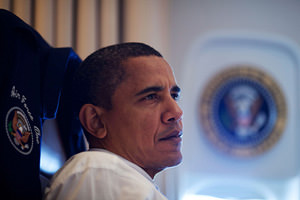A Truth, Crudely Put
Forgive me if I am neither shocked nor outraged at Harry Reid's comments about Barack Obama's skin. What I would find stunning is evidence that his assessment was anything but accurate.
Skin color among African-Americans is not to be discussed in polite company, so Senate Majority Leader Harry Reid’s newly disclosed remark about President Barack Obama — that voters are more comfortable with him because he’s light-skinned — offended decorum. But it was surely true.
Color bias has always existed in this country. We don’t talk about it because we think of color as subordinate to racial identification. There are African-Americans with skin so fair that only contextual clues speak to the question of race. I remember once looking up some distant cousins on my father’s side. They were so fair of hair and ruddy of cheek that I thought I’d gone to the wrong house, until one of them greeted me in what I guess Reid would call “Negro dialect.”
Forgive me if I am neither shocked nor outraged. A few years ago I wrote a book about color and race called “Coal to Cream,” and the issue no longer has third-rail status for me. What I would find stunning is evidence that Reid’s assessment — made during the 2008 campaign and reported in a new book by journalists John Heilemann and Mark Halperin — was anything but accurate.
Advertising is a reliable window into the American psyche, so look at the images we’re presented on television and in glossy magazines. The black models tend to be caramel-skinned or lighter, with hair that’s not really kinky — which is the way I’d describe mine — but wavy, even flowing. A few models whose skin is chocolate-hued or darker have reached superstar status, such as Alek Wek and Tyson Beckford, but they are rare exceptions.
Skin color could hardly be a more conspicuous attribute, but we don’t talk about it in this country. That’s been a good thing.
I became interested in perceptions of color and race when I was The Washington Post’s correspondent in South America. On reporting trips to Brazil, a country with a history of slavery much like ours, I kept running across people with skin as dark as mine, or a bit darker, who didn’t consider themselves “black.” I learned that at the time — roughly 20 years ago — fewer than 10 percent of Brazilians self-identified as black. Yet at least half the population, I estimated, would have been considered black in the United States.
This was because American society enforced the “one-drop” rule: If you had any African blood at all, you were black. In Brazil, by contrast, you could be mulatto, you could be light-skinned, you could be “Moorish” brown, all the way to “blue-black” — more than a dozen informal classifications in all. Color superseded racial identification. In Salvador da Bahia, I met a couple who considered themselves black but whose children were lighter-skinned. The children’s birth certificates classified them as branco, or white.
The Brazilian system minimized racial friction on an interpersonal level. The American system fostered such friction, through formal and informal codes that enforced racial segregation. But our “one-drop” paradigm also created great racial solidarity among African-Americans, while maximizing our numbers. We fought, marched, sat in, struggled and eventually made tremendous strides toward equality. The most recent, of course, was Obama’s election, which is difficult to imagine happening in Brazil — or, for that matter, in any other country where there is a large, historically oppressed minority group.
Brazil has now begun addressing long-standing racial disparities through affirmative-action initiatives. But the upper reaches of that society — the financial district in Sao Paulo, say, or the government ministries in Brasilia — are still so exclusively white that they look like bits and pieces of Portugal that somehow ended up on the wrong side of the ocean.
American society’s focus on race instead of color explains why what Harry Reid said was so rude. But I don’t think it can be a coincidence that so many pioneers — Edward Brooke, the first black senator since Reconstruction; Thurgood Marshall, the first black Supreme Court justice; Colin Powell, the first black secretary of state — have been lighter-skinned. Reid’s analysis was probably good sociology, even if it was bad politics.
Much worse, as far as I’m concerned, was the quote the new book, “Game Change,” attributes to Bill Clinton. In an attempt to convince Ted Kennedy not to support Obama, Clinton is supposed to have said that “a few years ago, this guy would have been getting us coffee.”
I guess the one-drop rule can still trump Harvard Law.
Eugene Robinson’s e-mail address is eugenerobinson(at)washpost.com.
© 2010, Washington Post Writers Group
Your support matters…Independent journalism is under threat and overshadowed by heavily funded mainstream media.
You can help level the playing field. Become a member.
Your tax-deductible contribution keeps us digging beneath the headlines to give you thought-provoking, investigative reporting and analysis that unearths what's really happening- without compromise.
Give today to support our courageous, independent journalists.






You need to be a supporter to comment.
There are currently no responses to this article.
Be the first to respond.